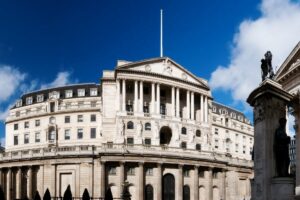The latest measures will have relatively little impact for high earners and wealthy investors. The 2024 Spring budget, and party manifestos, may provide more clarity about the direction of travel.
James Gladstone, Head of Wealth Planning, Cazenove Capital comments: “This year’s Autumn statement has come with more than the usual level of leaks and rumours. First, it was reported that inheritance tax was going to be cut. When that was denied, the focus shifted to income tax. In the end, national insurance was the only personal levy to fall. The “rabbit in the hat” was a 2% cut to the rate of employee national insurance contributions (NICs), rather than the anticipated 1%. There were also small changes to Class IV NICs and Class II NICs were abolished, both benefiting the self-employed.
For most individuals in employment or self-employment, these will have the same impact as a tax cut. However, national insurance is only applicable to income from employment; cutting it does not benefit those whose income derives from pensions or investments. Even for workers, the cut is not quite as generous as it appears. National insurance thresholds remain frozen, and wages continue to rise, albeit at a slower pace than last year. As a result, some individuals could end up paying more in national insurance, despite a lower headline contribution rate.
Still, the change is expected to cost around £10bn over the Office of Budget Responsibility’s (OBR) current forecast period (to the end of the 2027-28 tax year). It therefore uses up a significant chunk of the £27 billion of fiscal headroom created by higher-than-expected tax receipts, based on OBR figures. This is the amount by which the government can cut taxes, or increase spending, while remaining on track to reduce debt as a share of GDP.
A slightly smaller sum will be used to fund a business tax cut. To spur investment, the 2023 Spring Budget allowed companies to offset spending on plant and equipment against corporate tax until 2026. The Autumn statement makes this tax break permanent, at an estimated cost of £9 billion. This is good news for business owners; tax savings mean that long-term corporate cash flows will be higher than might otherwise have been the case.
Planning implications for high-net-worth investors
The Autumn statement will mean little immediate change for higher earners or wealthy investors. With an election very likely to be held in 2024, however, bigger changes may be on the horizon.
Hunt delivered a larger cut to national insurance than expected, but many in his party will have been hoping for more. Tax cuts are an obvious way to boost support heading into an election. And, with tax as a share of GDP the highest it has been in decades, it is also an ideological imperative for many Conservatives. We may well see further tax cuts in next year’s Spring Budget when the general election is in sharper focus, or outlined within the Conservative election manifesto. Party strategists reportedly remain very focused on cutting inheritance tax.
Of course, current polls suggest that Labour is more likely to be in power after the next election. Like the current government, it has heeded the lessons of Liz Truss’ short-lived administration and wants to position itself as a safe pair of economic hands. It has not signalled major shifts in spending or taxes but has committed to tax changes (read increases) in some areas. This includes changes to the “non-dom” tax regime as well as the introduction of VAT on private school fees.
We will need to see the detail of the Labour party’s manifesto next year, however, from what we know so far, we are less likely to see tax cuts under a Labour government. Some taxes that are primarily paid by the wealthy – such as capital gains tax – could rise. Where there is flexibility to take advantage of current relatively favourable tax rates, it may be prudent to do so.
A gamble on inflation?
UK financial markets have stabilised since the 2022 mini-Budget. And the government can – just about – claim to have met its pledges to grow the economy and halve inflation. However, this growth is far from exciting: output will expand by just 0.6% this year, according to the OBR. It is not enough to allow for more meaningful tax cuts or increases to spending that could significantly improve the outlook for public services.
There is also a risk that this national insurance cut backfires. The OBR suggests that today’s policy package will only “raise inflation in the near-term incrementally” but other economists are more cautious. Markets have now assumed that UK inflation is on a path back towards target and that UK interest rates are at a peak. If inflation does start to rise again, forcing the Bank of England into further rate rises, investors – and voters – may not be particularly forgiving.”

















